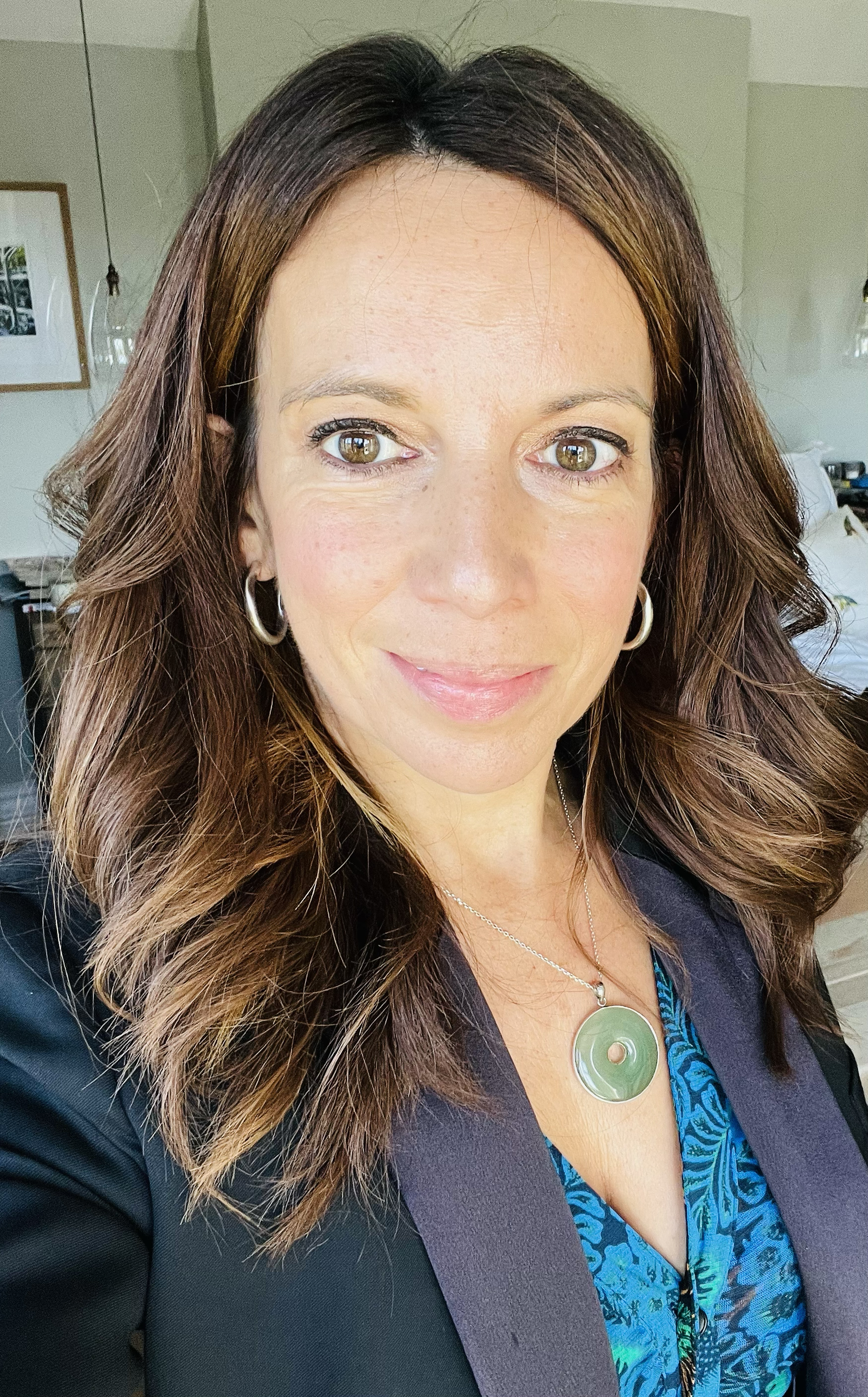“My kids have an incredible life thanks to our family’s Instagram feed” – it’s time to meet the ‘Sharents'
Three family influencers, each followed by over 100,000 people on Instagram, explain how they manage risks and reap the rewards for their children

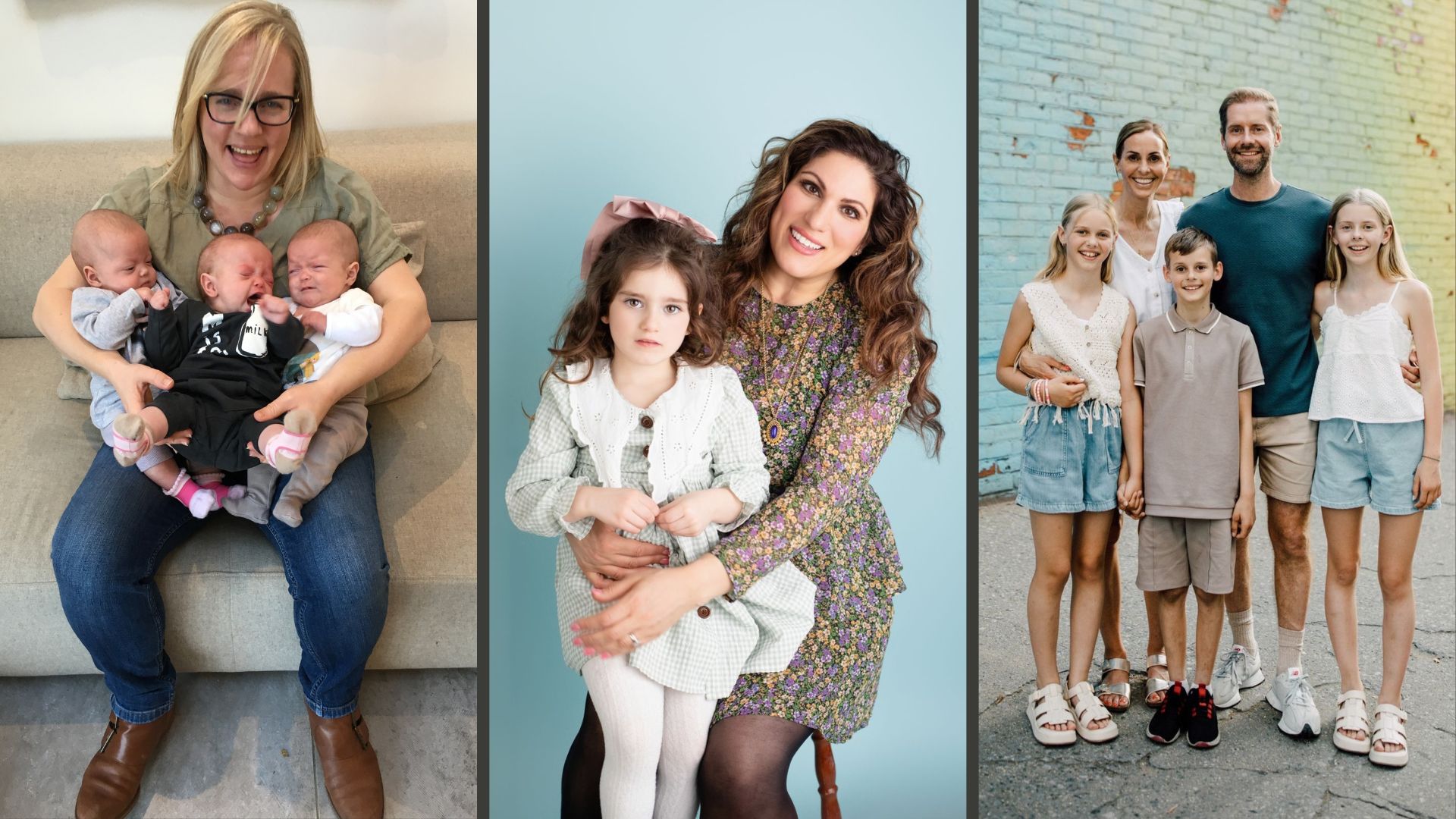
With parents on social media sharing everything from their kids' first day of school to a live-stream of their breakfast routine, images of children’s lives flash up online in the millions every day.
A recent study by Posterista found that pictures of newborns are uploaded to Facebook on average 57.9 minutes after their arrival into this world, while another report from the UK’s Office of the Children’s Commissioner found the average child has 1,300 photos of themselves posted online by the time they’re 13.
So it's not surprising that debate around ‘sharenting’ (sharing pictures of your kids online) is intensifying. Some celebrities, like Gigi Hadid and Holly Willoughby, choose to conceal their children's faces on their social channels, while others have built entire brands around becoming parents and mums.
Is it possible to share content of your family while also putting your kids’ safety, rights and needs front and centre? We spoke to three family influencers to find out.
Managing risk
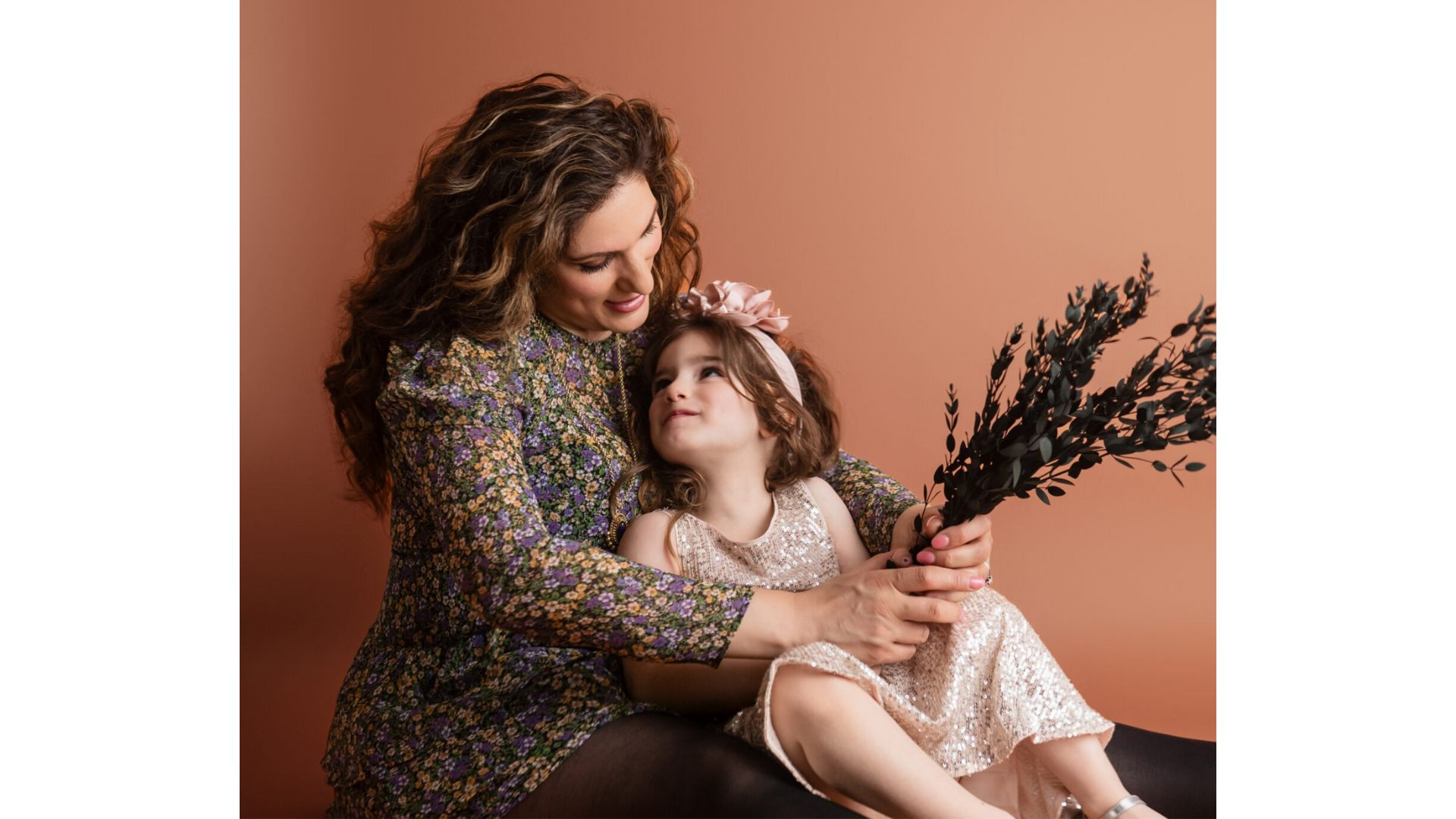
Vicki Broadbent with her daughter Florence
Former award-winning screenwriter and director turned blogger and author, Vicki Broadbent (@honestmum) started a parenting blog after the birth of her first son, Oliver, in 2010. It rapidly became a lucrative career that fitted perfectly around family life as she went on to have two more children. She now has over 150k followers on Instagram and has just finished her first children’s book.
“Being a content creator has meant I’m able to continue using my creative skills but also work flexibly around my family without the limitations of being on set for 12-hour days directing," she tells us.
“I understand the harm and concerns more than most, having advocated for the Online Safety Bill while sitting on a panel in the House of Commons with Google and Mumsnet.
Sign up to our free daily email for the latest royal and entertainment news, interesting opinion, expert advice on styling and beauty trends, and no-nonsense guides to the health and wellness questions you want answered.
"There are dangers from those seeking out content of children, important considerations around data protection, and risks of people finding out where we live etc, so I’m careful never to share details like the outside of our house or my kids’ school uniforms. The duty of care towards my children is my greatest priority.”
Fellow Insta-Mum Laura Dove, 42, also believes it is possible to share family content in a safe and responsible way and has evolved her page @fivelittledoves, which she runs together with her husband Gareth, as her children have grown up.
“Gareth and I have ongoing discussions about our limits when it comes to sharing our lives. When travelling, we’re careful not to give live locations and only share our travel details and top tips once we return home.”
Embracing the upsides
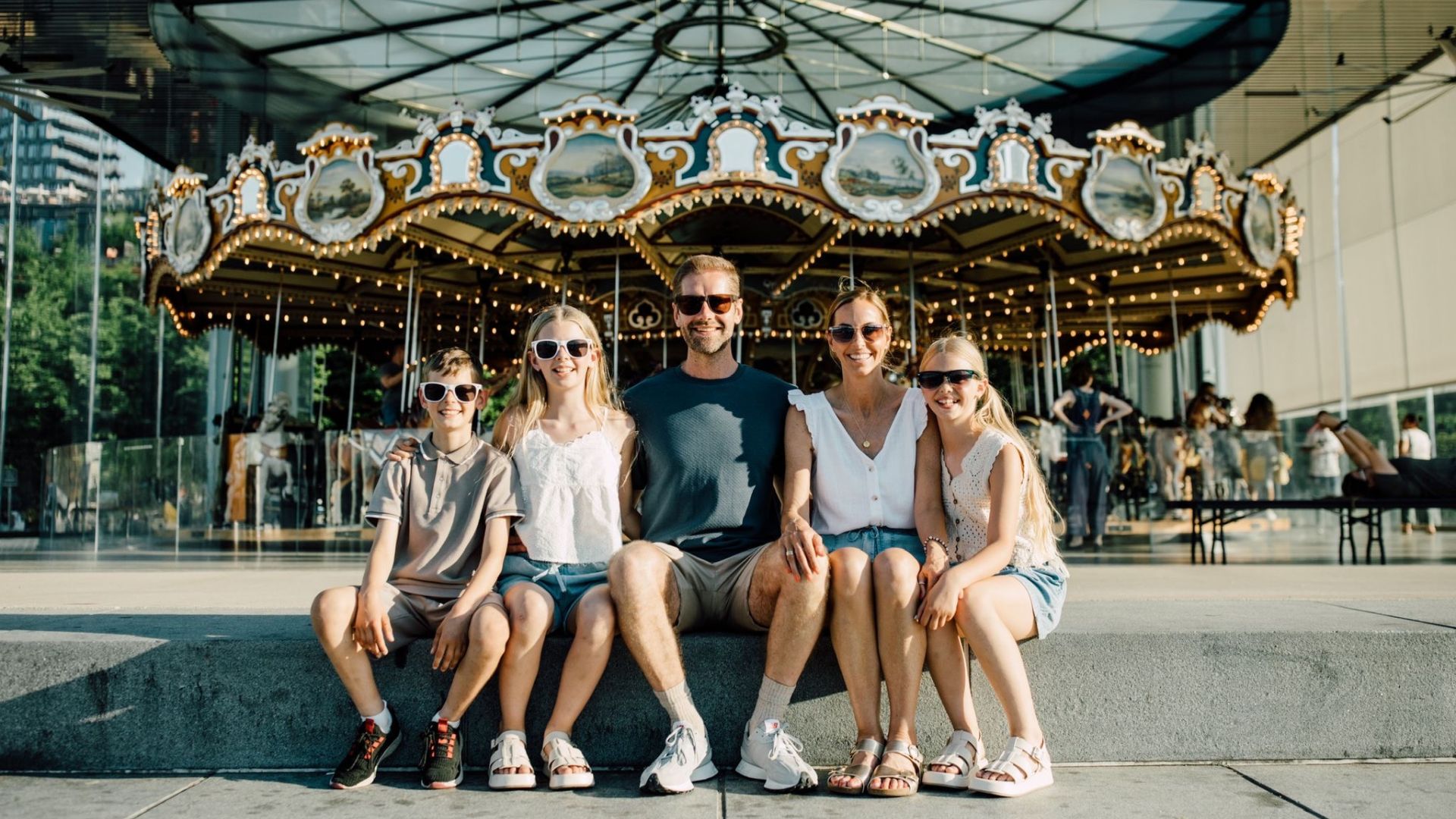
Laura Dove with her husband and three of their children
While cognisant of the risks, Laura's family account, @fivelittledoves, has brought many upsides for the family.
“The kids get paid by us for every campaign they take part in, so they have built up savings which will help them buy their first car, house or make other plans for their futures.
"It’s instilling a great work ethic in them from a young age and we’re also showing them the world as we travel.
"The kids themselves are slowly becoming aware of their ‘fame’, which they see as exciting and something to be proud of when their friends say they’ve seen them on Instagram or in a poster.”
Mum of four Rebecca Wooldridge, 51, started her page @mummy_to_triplets_and_bro in 2018 as part of her healing journey after the traumatic birth of her triplet daughters Etta, Bertie and Amelie in 2016.
“It was cathartic when I started posting and discovered others who’d been through similar experiences. I found my tribe – a whole army of mums and grandmothers who said they were helped by what I wrote, and they also helped me.
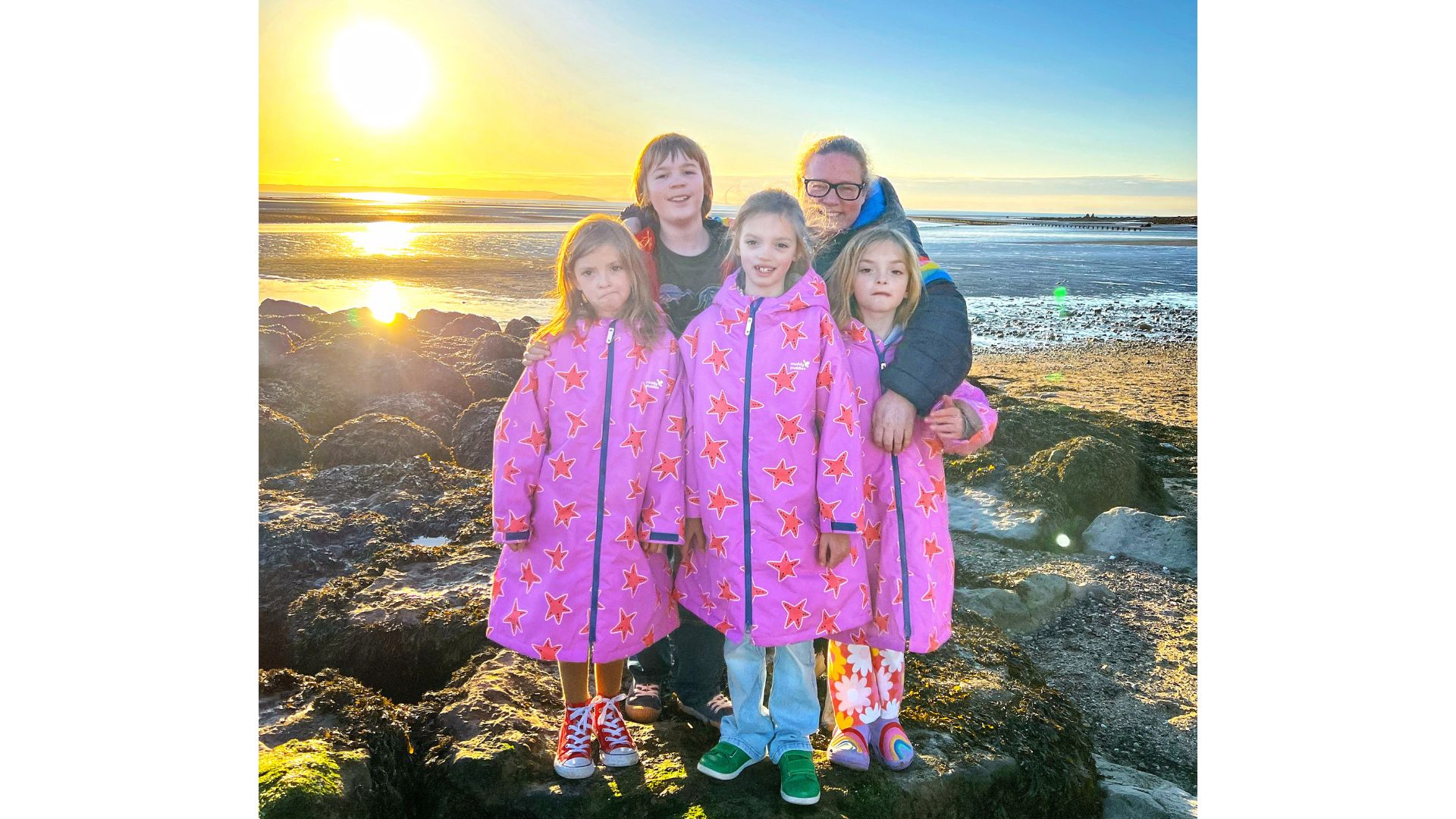
Rebecca Wooldridge with her triplet daughters and her son
"It lifts my heart when I get their positive responses – we’re like long-term pen pals. It’s lovely to have an Instagram family looking out for the children and what we’re up to.”
Rebecca also works hard to make creating content fun for the kids and puts clear boundaries in place around their digital activity.
“I don't want their memory of growing up to be about making mum’s films, so I keep it light. I want it to be a happy bonus with some fun extras like the toys we get sent.
"People might be surprised, but I have no plans for my kids to get social media accounts until they’re much older. My 12-year-old son Felix doesn’t even have a smartphone yet.”
Getting consent
Consent can be tricky with young children, but it’s a key consideration. Vicki Broadbent manages it differently by age.
“Now my boys are older (15 and 12), they have total control over what and how they are represented and if they want to work with brands or not. They also approve any content of them before we post.
"Even when they were younger, we never forced them to do anything they didn’t want to. My daughter is three and like myself as a child, seems to love being in front of the camera. When she becomes older, we'll be able to discuss consent but for now this isn't a subject she would understand. If she's ever unhappy, we just stop.”
Anita Cleare, parenting expert and author of ‘How to Get Your Teenager Out of Their Bedroom’ believes engaging with social media can build valuable digital literacy for children.
“Supporting children’s digital lives is a bit like teaching them to swim. We wouldn’t ban them from the water [when they're little] and then turn around at 14 and say, 'Now you are on your own.'
“By involving children in discussions around consent and privacy, we educate them on how to navigate digital social lives and use social media safely.”
Your child’s digital footprint
Claire Bessant, an associate professor in law at Northumbria University who has written extensively on the challenges of sharenting suggests considering any future ramifications of what you post.
“When you share your children’s information online, you are creating your child’s digital footprint, which will follow them their entire lives.
"Consider whether your child will want friends or future employers to see the information you share. Avoid information that is over-revealing or private or that might upset or embarrass your child in future.”
She recommends looking at the NSPCC’s family online agreement, which prompts parents and children to agree on a strategy before posting information, as a good starting point for conversations.
If you’re keen to make sure you’re ‘sharenting’ responsibly, parenting expert Anita recommends asking yourself these five questions before each post:
- How might my child feel about this post now or when they are older?
- What personal information is revealed in this post?
- Who am I happy for this post to be seen by?
- Would I print this photo on a t-shirt and wear it? (If no, don’t post it online!)
- What negative feelings or responses might this post generate?
Ellie juggles being Mum to a chaotic blended family of seven with working as a lifestyle and travel writer. With a Masters in Psychology, Ellie is passionate about delving into what makes people tick and bringing to life their stories. Using the real-life experience of her own ‘modern family’ and their many adventures alongside her diverse range of personal interests, she’s recently covered topics as varied as the Taylor Swift phenomena, helping kids through divorce, Living Funerals and South African Safaris. Ellie contributes to publications such as Woman&Home, Woman, Woman’s Weekly, Good Housekeeping, The Times, Red Magazine, Travel Africa and Family Traveller.
